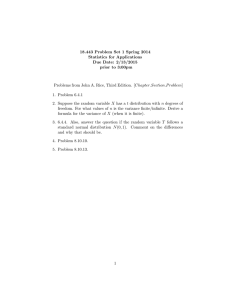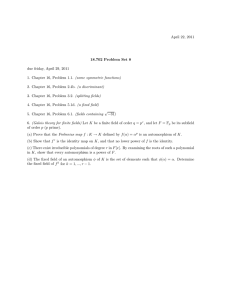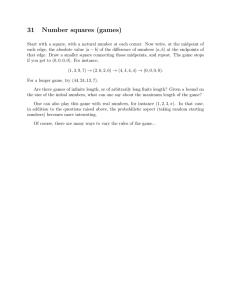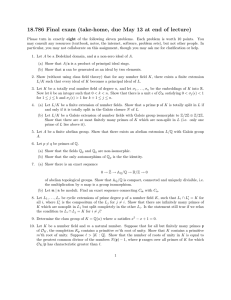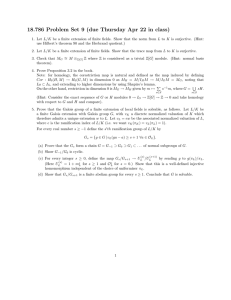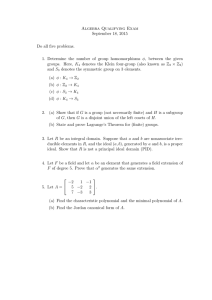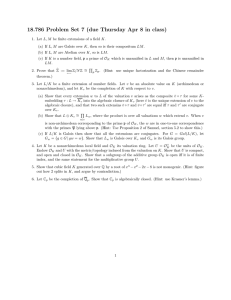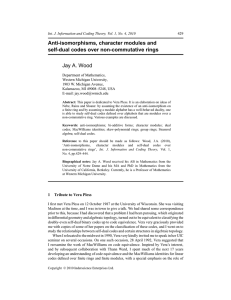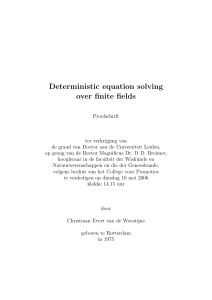18.786 Problem Set 6 (due ...
advertisement
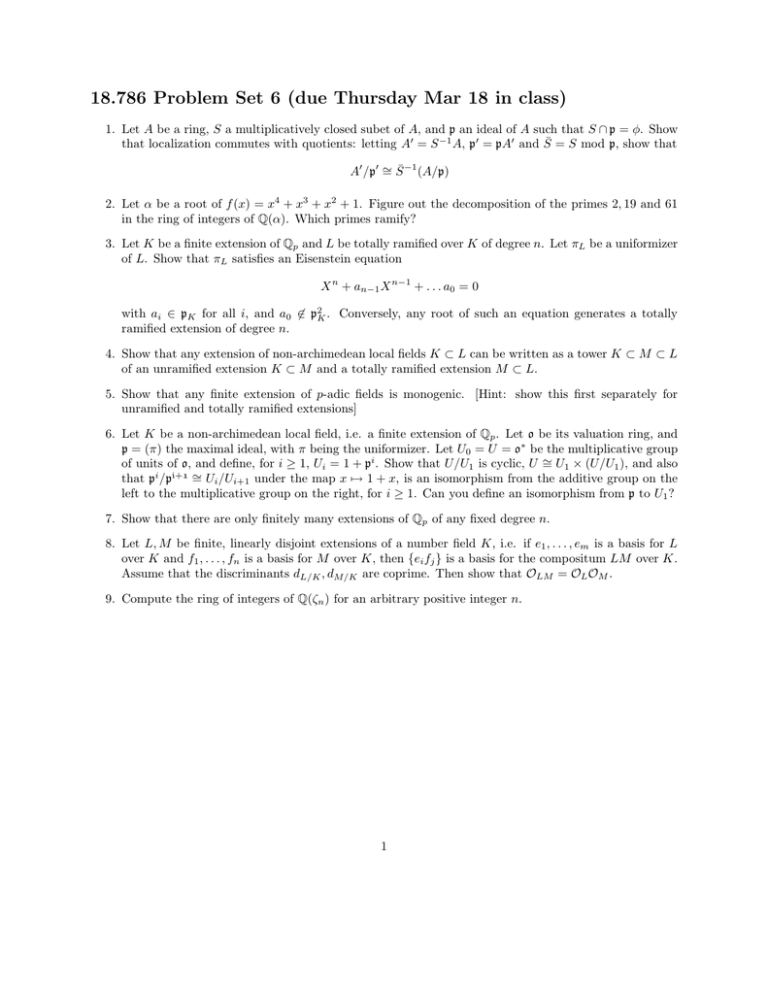
18.786 Problem Set 6 (due Thursday Mar 18 in class)
1. Let A be a ring, S a multiplicatively closed subet of A, and p an ideal of A such that S ∩ p = φ. Show
that localization commutes with quotients: letting A′ = S −1 A, p′ = pA′ and S̄ = S mod p, show that
A′ /p′ ∼
= S̄ −1 (A/p)
2. Let α be a root of f (x) = x4 + x3 + x2 + 1. Figure out the decomposition of the primes 2, 19 and 61
in the ring of integers of Q(α). Which primes ramify?
3. Let K be a finite extension of Qp and L be totally ramified over K of degree n. Let πL be a uniformizer
of L. Show that πL satisfies an Eisenstein equation
X n + an−1 X n−1 + . . . a0 = 0
with ai ∈ pK for all i, and a0 6∈ p2K . Conversely, any root of such an equation generates a totally
ramified extension of degree n.
4. Show that any extension of non-archimedean local fields K ⊂ L can be written as a tower K ⊂ M ⊂ L
of an unramified extension K ⊂ M and a totally ramified extension M ⊂ L.
5. Show that any finite extension of p-adic fields is monogenic. [Hint: show this first separately for
unramified and totally ramified extensions]
6. Let K be a non-archimedean local field, i.e. a finite extension of Qp . Let o be its valuation ring, and
p = (π) the maximal ideal, with π being the uniformizer. Let U0 = U = o∗ be the multiplicative group
of units of o, and define, for i ≥ 1, Ui = 1 + pi . Show that U/U1 is cyclic, U ∼
= U1 × (U/U1 ), and also
that pi /pi+1 ∼
= Ui /Ui+1 under the map x 7→ 1 + x, is an isomorphism from the additive group on the
left to the multiplicative group on the right, for i ≥ 1. Can you define an isomorphism from p to U1 ?
7. Show that there are only finitely many extensions of Qp of any fixed degree n.
8. Let L, M be finite, linearly disjoint extensions of a number field K, i.e. if e1 , . . . , em is a basis for L
over K and f1 , . . . , fn is a basis for M over K, then {ei fj } is a basis for the compositum LM over K.
Assume that the discriminants dL/K , dM/K are coprime. Then show that OLM = OL OM .
9. Compute the ring of integers of Q(ζn ) for an arbitrary positive integer n.
1
MIT OpenCourseWare
http://ocw.mit.edu
18.786 Topics in Algebraic Number Theory
Spring 2010
For information about citing these materials or our Terms of Use, visit: http://ocw.mit.edu/terms.
